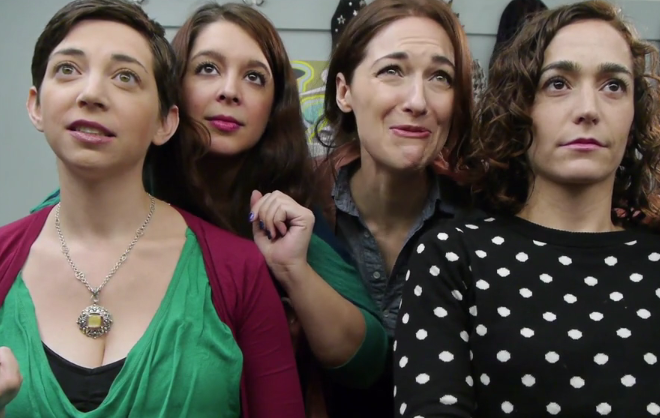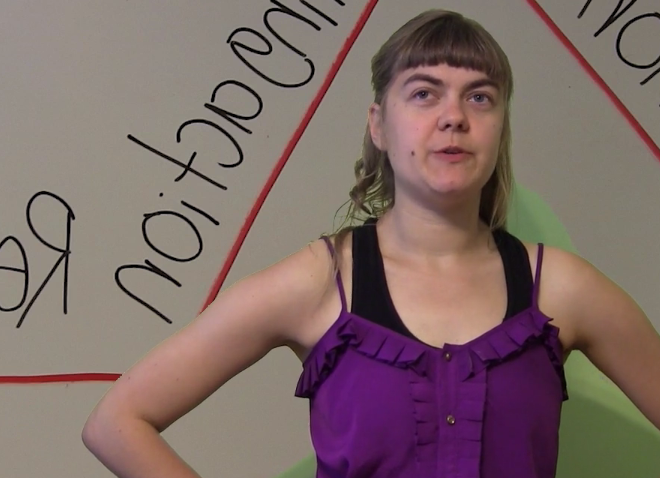You've really got to apply yourself.
What is it?
Applied Theatre is what happens when a group of people working in community use the techniques of drama and theatre to address an issue of social concern. Those participating in the activities have a vested interest in said social issue. Applied Theatre focuses on questioning, discussing, and addressing the issue, as opposed to focusing on creating a public performance. Participants come together to use various techniques such as role-playing, improvisation, tableaux work, Augusto Boal’s Theatre of the Oppressed techniques, and other interactive methods in order to inspire dialogue, foster education, and enact change.
Who does it?
The activities may be carried out by actors, performance artists, teachers, therapists, activists, community organizers—and those who would not self-define as any of these!
Where does it happen?
Applied Theatre can happen anywhere, and it will often NOT happen in a traditional theatre space. The setting for Applied Theatre does not require any particular apparatus—it can happen in a classroom, at a community center, at a meeting, or in a park! Applied Theatre work includes drama therapy, theatre-in-education, community and team-building, conflict resolution, and political theatre, to name just a few of its uses.
Why does it happen?
Using one’s voice, body, imagination, and communication skills are extremely effective practices for viewing circumstances, challenges, and conflicts from a variety of perspectives. The various activities covered in the umbrella term “Applied Theatre” are not only provocative and inspiring—they can also be invigorating, restorative, and even healing. Just as one might apply a medication to deal with a physical ailment, one might “apply” theatre to deal with a social ailment. Have a sunburn? Apply aloe vera! Have a cut? Apply a bandage! Have a fractious issue within your community? Apply theatre!
What is an example?
The accompanying video clip shows several examples of Applied Theatre in practice with members of Looking for Lilith Theatre Company. Looking for Lilith has created a Forum Theatre piece entitled Choices: an interactive play on cyberbullying and suicide. This piece is an example of Augusto Boal’s Forum Theatre, a type of Theatre of the Oppressed work. Audiences of teenagers, adults, or both observe an actor portraying a 15 year-old girl who is viciously cyber-bullied until she reaches a point of such extreme despair that she decides to take her own life. At this point the action stops, and the community is asked what they might choose to say or do differently if they were in the character’s position. The actors try out the suggestions of the participants, while at the same time enacting realistic obstacles that might arise with each suggestion. After a point, the “spect-actors”(audience participants) are encouraged to replace the original actor when trying out their ideas, therefore literally rehearsing what they would do in a similar situation. Also in the clip, we see Lilith artists working in community with students, teachers, and with a group of women in Guatemala with whom they have formed a decade-long partnership. Using techniques such as playback theatre and tableaux work, the participants are creating scenes and fostering conversations that address pressing issues in their lives.
—Looking for Lilith Theatre Company
This video was made by Looking for Lilith Theatre Company. Looking for Lilith Theatre Company is a women’s ensemble that creates productions and programming through re-examining history and interrogating today from women’s perspectives, a practice that frequently uncovers unheard voices. LFL productions and programming serve adults, youth and children locally, nationally and internationally.
Featured in the video are Artistic Director Shannon Woolley Allison, company member Ebony Jordan and Jaycee Padilla. Footage includes LFL’s work in Guatemala, the cyberbullying and teen suicide Forum Theatre production of “Choices”, teacher professional development program, and various in-school and after-school programs.
Looking for Lilith is a member of Network of Ensemble Theatres.

